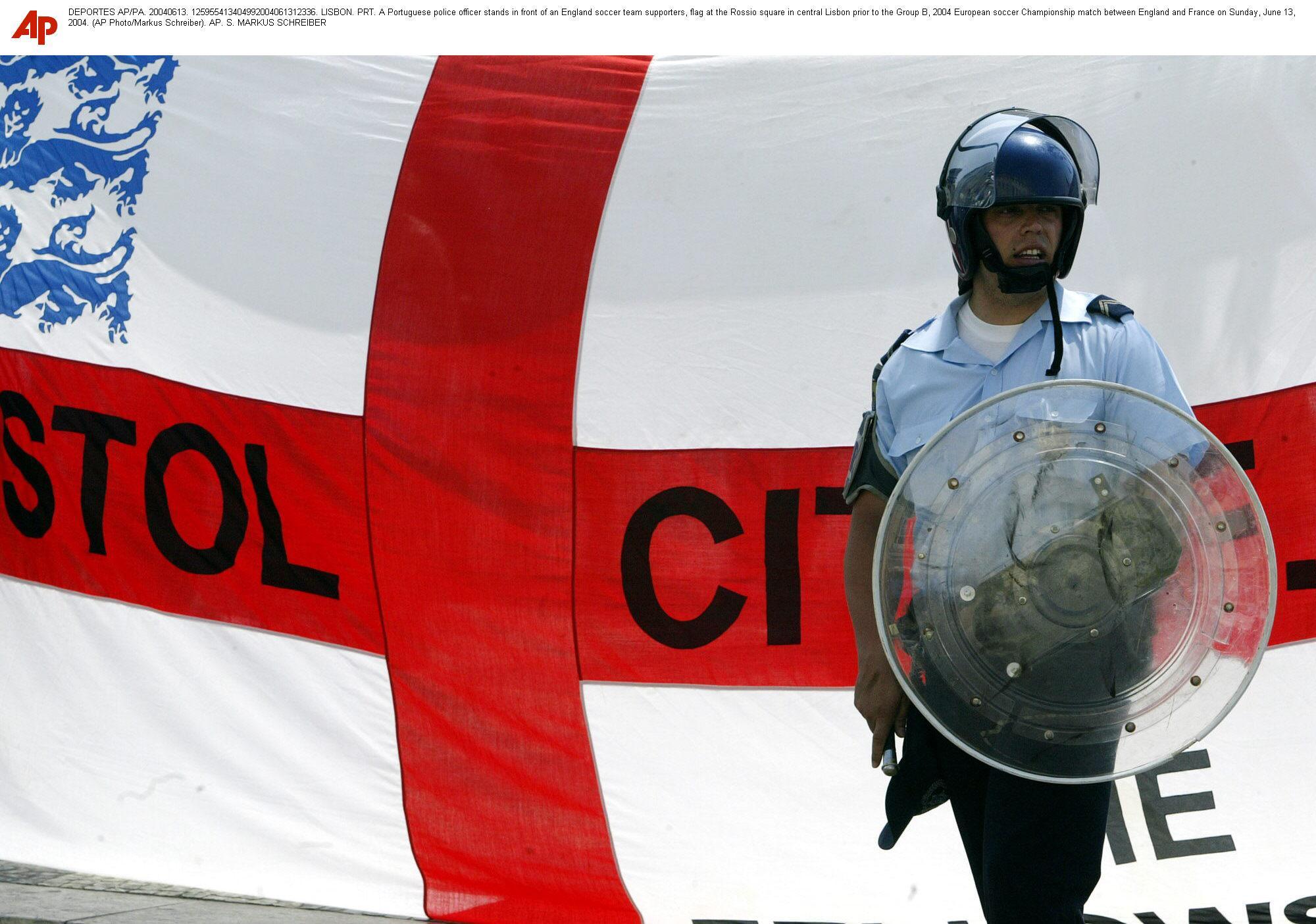A recent surge in violence around soccer games is contributing to concerns over security when Germany hosts the European Championship.
"We're readying for all imaginable dangers with high levels of deployment from all security authorities," said German interior minister Nancy Faeser, who said the country is preparing for all manner of threats, from hooligans, to terrorists, to cyber criminals. "The police will have a very visible presence," she said.
Faeser's ministry confirmed some 22,000 police officers will be on duty each day for the tournament, with no vacations.
"For the federal police it's the largest deployment since it was founded in 1951," ministry spokesman Lars Harmsen told The Associated Press.
German police will be supported by police from countries participating in the tournament, and internal border controls have already been temporarily reintroduced.
Euro 2024 features matches in 10 cities, including four in the densely populated Rhine-Ruhr metropolitan region — easily accessible from neighboring countries with some of the best rail links in Europe.
The tournament presents multiple opportunities for soccer-related violence, which has been increasing steadily around Europe since 2021. Last season, one fan in Greece and one in France were killed in fights. The season started and ended with attention-grabbing clashes and even saw intense soccer rivalries carried into other sports.
British police in 2022 reported more arrests in any season since 2013-14, and in 2023 they reported issuing more banning orders than at any time since 2010-11, as well as an increase in arrests from the season before. In France, more than 100 police officers were injured in soccer-related incidents during the 2022-23 season. The violence continued last season with multiple incidents, including pre-arranged fights and coaches transporting fans being pelted with objects.
Among the recent incidents, rivals from Lyon and Paris Saint-Germain fought a pitched battle at a motorway stopoff before the French Cup final last month.
That same weekend, fans of Dutch club Utrecht clashed violently with police. One officer needed hospital treatment and others were treated at the scene.
Also that weekend, soccer rivalry spilled into EuroLeague basketball finals in Berlin with coordinated late-night attacks by Olympiakos fans and Serbian allies from Red Star Belgrade against supporters of Olympiakos' Greek rival Panathinaikos. Police arrived to find blood-covered men, with many injured from baseball bats and batons and one in a life-threatening condition. Red Star were not even playing at the tournament and arrived undetected.
Alliances among hooligan firms are one of the hazards facing German authorities at Euro 2024. Cross-nation club rivalries carrying into the international scene make it harder to identify and control troublemakers.
Italian ultras from Atalanta joined Eintracht Frankfurt fans to fight Napoli supporters before a Champions League game. The Atalanta fans helped Eintracht fans circumvent a travel ban to enter Italy through a club ally in Calabria.
The season began with the death of a fan in Athens after heavy clashes between supporters of Greek club AEK and Croatian side Dinamo Zagreb before a Champions League qualifier. Dinamo fans were joined by supporters of Panathinaikos, a fierce rival of AEK, underlining dangerous alliances.
"Hooligan firms who are keen on fighting it out, they're much more organized than before," German soccer researcher and author Christoph Wagner told the AP. "Red Star coming down with Olympiakos, that's the kind of thing people don't have on their monitors."
England's game against Serbia on June 16 in Gelsenkirchen stands out since both fan groups have a history of domestic and international violence.
Euro 2016 in France was marred by violence as Russian hooligans roamed Marseille attacking English fans. Many known English hooligans were absent because more than 2,000 were banned from traveling. But many of those bans will have elapsed before Euro 2024.
Gelsenkirchen's location in the Rhine-Ruhr region could be a factor. Fans staying in Cologne can reach Gelsenkirchen within an hour. Those staying in Düsseldorf, Wuppertal, Essen or Duisburg are even closer and could arrive by car.
British newspaper The Daily Telegraph, citing German police intelligence, reported Tuesday that up to 500 Serbian hooligans planned to arrive.
Other high-risk games involve Poland, Croatia, Romania, the Netherlands and the Czech Republic.
Hooligans from Poland are among Europe's most violent. Last November, police arrested 46 Legia Warsaw fans before a Europa Conference League game against Aston Villa. Four police were injured.
German groups, such as Eintracht Frankfurt or Schalke 04 from Gelsenkirchen, may look for confrontation when teams are playing in their city.
Rival hooligan groups have a common enemy - the police. Some 155 officers were injured in clashes with Dynamo Berlin and Energie Cottbus supporters last month. Most injuries were from tear gas, suggesting the police struggled to control the situation.
During the disturbances with Utrecht fans, police drove a van at fans to disperse them.
"You would think a police force with more powerful resources available should actually step back," Wagner said. He added that police are not always accountable and sometimes remove identification before going into clashes.
Avoiding police is easier fighting the night before games, or very early. In May, 200 Schalke and Hansa Rostock supporters fought before 6 a.m. in Gelsenkirchen.
Soccer violence seems to have its own market.
Some people filming fights post them online, and there are specialized social network sites dedicated to showing them.
There's also a hooligan video game. "Dive into the world of street football hooligans, epic battles," it promises.
Hooligans can buy a t-shirt with the logo "Euro 2024, Festival of Violence," while one Instagram account tracking hooligan fights pledges to report "events outside the stadium."
